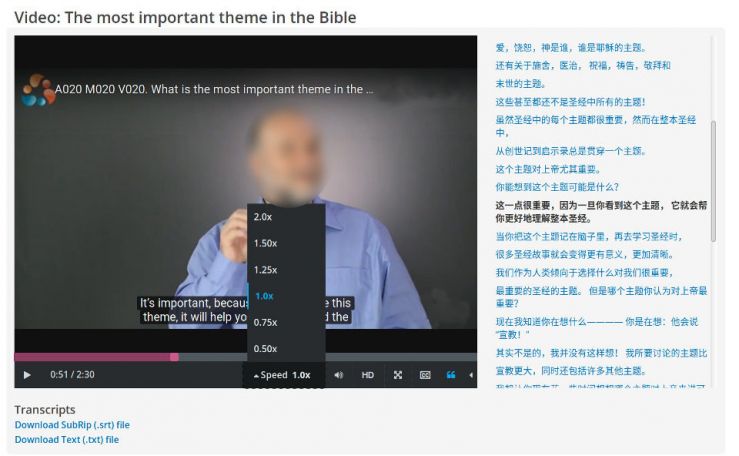Note: This page is aimed mainly at mission training directors and church leaders who wish to evaluate our course content for suitability to their organization.
Want to see what our courses cover? Read our course evaluator guides
Why use our courses?
Research has shown that missionaries who had good pre-field training last longer on the field than those who don't (Hay, Lim et al 2007:18, 55, 155). Our courses are intended to lay a basic but solid foundation for long-term ministry. Interestingly, training in missiological subjects was shown to be more beneficial than theological training (Hay, Lim et al 2007:156).
Who can use our courses
Didasko course material could be used in these ways:
- Churches can use Didasko courses as mobilization or for training for their members.
- Missions agencies and mission boards can use our courses as part of their training or applications requirements for new members.
- Christians who have access to the internet all over the world can do the courses as individuals.
- A group of people form a group via email/social media. They watch the videos individually on the internet, then use the discussion forum on the internet to exchange ideas.
- A group of people who live close by can watch certain prearranged videos during the week by themselves, and then get together once a week or so, to discuss what they have learned.
- A group of people can come together, watch the videos together and have discussions on what they have learned.
- Some of these groups above could also be missionary teams on the field, who can then apply what they’ve learnt immediately.
Because our courses are free to use and open to all, mission organisations and mission boards can take the courses on Didasko and adapt the curriculum to their needs — “cherry picking”. Click Running a course at your church or organization to see more information.
There is also a page that explains our “free and open” approach. Please click here: Free and Open Courses.
Course structure
Didasko courses consists of a series of short instructional videos, anything between 8-12 minutes. Each video covers one topic.
Most videos are followed by a short quiz, which is not aimed so much at testing the learners, but rather to help them to ensure that they have grasped the most important information in each video. Course facilitators to groups can use these quiz questions in class instead of doing them online.
Because we encourage personal reflection and prayer, most videos also have one or more questions learners are encouraged to reflect on. Learners are encouraged to meditate and pray about the issues from the video, and to apply what they have learnt to their lives. These questions can be used by course facilitators in class to stimulate small-group discussion. Reflecting and praying should help learners grow deeper in their knowledge and the application of this knowledge.
For online users, there is a web-based discussion forum after most videos. There, learners can interact with other people doing the same course all over the world. This exposes learners to a wider set of opinions than just those of their own group.
After many videos there may be optional reading or assignments in the form of online articles, all of which are available freely.
The following TED talk on YouTube gives some idea as to our training philosophy: Click here
Certificates (digitally signed)
Most courses have a short exam at the end, usually in the form of a multiple-choice quiz. In order to earn a certificate, a learner must pass all the graded quizzes in the course. They can send a URL to their organization and/or church who can view a digitally verified certificate online. Example Certificate.
Language

The subtitles on the right of the video scroll as the instructor speaks (see image). If a learner wishes to re-view a section of the video, they can scroll the text area backwards, and click on the text. The video will then rewind to the corresponding point in the video.
The subtitles may be downloaded for learners who prefer to read.
Pedagogical approach
We are committed to adult learning techniques such as relevance, self-direction, experience, immediate, intrinsic motivation and readiness to learn (Malcolm Knowles, see Hatcher's article). The quickest introduction to our e-learning approach, is to watch Peter Norvig's excellent six minute TED talk. Click here. To learn more about MOOCs, click here.
Download course evaluator guides
Each course's evaluator guide shows learning objectives for the course, together with a list of videos and the learning objectives of each video.
Download PDF course evaluator guides
More information on each course
For more information about each course, click here:
References
Hay R, Lim V et al 2007. Worth Keeping: Global Perspectives on Best Practice in Missionary Retention. Pasadena, CA: William Carey Library.
Vermont, Henry 2020 (PhD dissertation). Designing and Evaluating a Curriculum for the Effective and Accessible Training of Frontier Missionaries from New Sending Countries. Johannesburg, South Africa: South African Theological Seminary. Available online: https://box.dasko.org/s/J2fjBmfCCoBiqaM.


